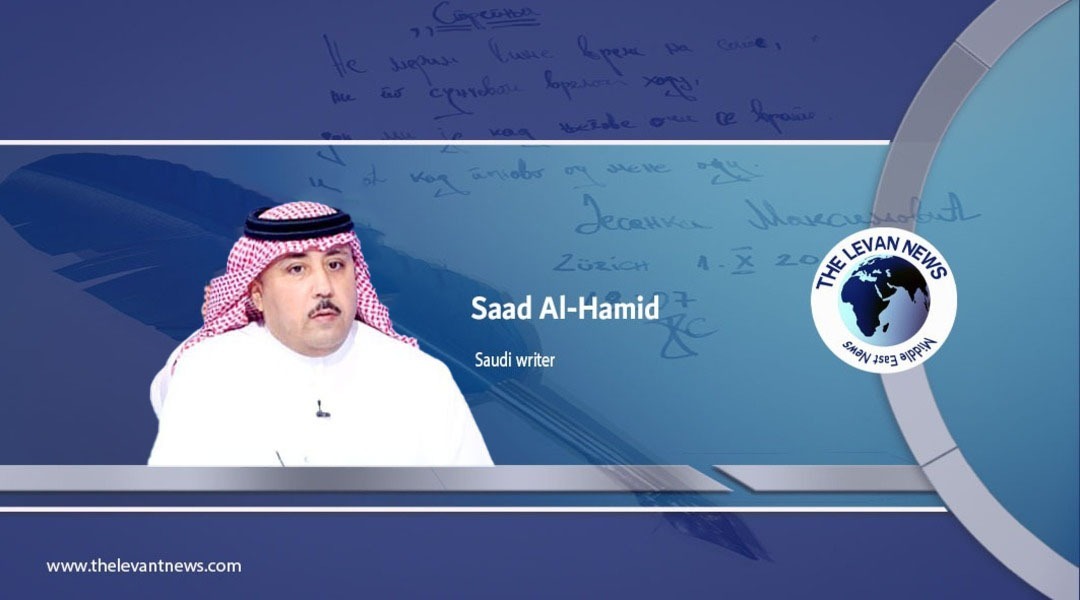-
The Iran nuclear deal ... What else?

The goal of the negotiations on the Iran nuclear deal, which began 18 months ago and was suspended and then resumed in August, was to revive the 2015 deal between Iran and the five permanent UNSC members (China, the USA, France, the UK and Russia) in addition to Germany.
Iran and the six countries (China, Russia, the USA, France, Germany and the UK) held prolonged negotiations from March 26 to April 2015 in the Swiss city of Lausanne to reach a comprehensive deal that guarantees the peaceful nature of Iran's nuclear programme and to lift sanctions on Iran completely.
The deal was seriously made, and after long negotiations, Iran and the six countries made a joint statement, in April 2015, in which they announced understandings about Iran's nuclear programme to be completed in June 2015. Tehran considered this agreement as great progress that serves everyone and Washington called it historic. Internationally, some countries considered it historical and others saw it as very dangerous. The USA withdrew from it in 2018 after several reports of the Atomic Energy Agency that warned the nuclear programme is not peaceful because of violating the uranium enrichment, preventing the agency's inspectors from inspecting and verifying the nuclear programme is peaceful.
Former US President Donald Trump said that after the sanctions were lifted, the dictatorship used its new funds to build nuclear-capable missiles, support terrorism, and cause havoc throughout the Middle East and beyond. Currently, supporters of the resumption of the Iran nuclear deal believe that deal will freeze Tehran's nuclear programme and open the way for Washington and its allies to confront China's increasingly aggressive activities in the Indo-Pacific and Russia's ones in Crimea, but some believe that it may backfire if the parties reached a weak and short-term deal which may enhance Iran's nuclear power i.e. more instability in the Middle East and the Indo-Pacific. Some observers believe that it may also make China extend its influence in the Middle East where Iran has suffered from diplomatic and economic isolation due to Western international sanctions for many years and has sought support from some countries to break its isolation, including China, which has become for years the first trading partner and an important destination for its energy exports and a major investor in the Iranian industrial sector.
Iran exports all of its oil to Chinese companies which buy it violating international sanctions. This partnership will get China unlimited exports of massive Iranian gas and oil reserves, which will meet China's large needs for nuclear energy, The Iranian regime is in an embarrassing situation in front of its citizens due to the deteriorating Iranian economy and inflation, the repercussions of the COVID-19 epidemic & the Russian-Ukrainian war which has affected energy prices. The failure of OPEC producers to increase oil production to ensure the stability of the global market causes concern for Washington and Europe and this was directly reflected on the American people's living standards, the upcoming American mid-term elections, the popularity of US President Joe Biden and the Democratic Party. Perhaps the levels of inflation that have impacted the US stock market clearly show the increasingly high standards of living that Americans are putting up with now. The global economic inflation along with the approaching winter tell why Berlin, Paris and London want the efforts of the nuclear deal and the Comprehensive Plan of Action between Tehran and Washington to succeed so that the Iranian oil and gas replace the Russian ones the thing that will reduce globally the oil prices and put more pressure on the Russian economy.
High Representative of the European Union for Foreign Affairs and Security Policy Josep Borrell said Russia will not be happy about the Iran nuclear deal because it poses a danger to its oil. Yedioth Ahronoth newspaper quoted the Mossad chief who said that Washington is rushing to sign the nuclear deal and it knows that it is an absolute lie and goes against reason and that any agreement will not retard Iran's capabilities and will not leave it restrained for several years to come; that would harm the global and regional security.
Perhaps Washington's interest to achieve greater stability in the Gulf region for its allies against the Iranian threats is another aspect that makes it difficult for Washington to conclude this deal with the ceiling of Iran's increasing demands during the rounds of negotiations with Washington. For Tehran, having a nuclear programme is something irreversible and decisive and that stance is shown through its defence of the peacefulness of this programme, its unwillingness to discuss its missile programme, accept listing the Revolutionary Guards (IRGC) as a terrorist organisation and discuss the existence of any evidence the Atomic Energy Agency has on uranium enrichment during the inspection of the Iranian nuclear facility. All this makes everyone concerned about Tehran's honesty about its nuclear programme. There is no doubt that the return of frozen assets to Tehran after the conclusion of the deal is also concerning because it will support even more its militias in Iraq, Lebanon, Yemen and Syria and continue its aggressive behaviour against its neighbouring countries.
I believe that Tehran wants to make greater gains and obtain greater concessions from Washington and the West before concluding the deal and plays with time so that its interests with Russia are not harmed in case the nuclear deal is fully concluded and therefore the negotiation rounds will continue.

By: Saad al-Hamid
You May Also Like
Popular Posts
Caricature
BENEFIT Sponsors BuildHer...
- April 23, 2025
BENEFIT, the Kingdom’s innovator and leading company in Fintech and electronic financial transactions service, has sponsored the BuildHer CityHack 2025 Hackathon, a two-day event spearheaded by the College of Engineering and Technology at the Royal University for Women (RUW).
Aimed at secondary school students, the event brought together a distinguished group of academic professionals and technology experts to mentor and inspire young participants.
More than 100 high school students from across the Kingdom of Bahrain took part in the hackathon, which featured an intensive programme of training workshops and hands-on sessions. These activities were tailored to enhance participants’ critical thinking, collaborative problem-solving, and team-building capabilities, while also encouraging the development of practical and sustainable solutions to contemporary challenges using modern technological tools.
BENEFIT’s Chief Executive Mr. Abdulwahed AlJanahi, commented: “Our support for this educational hackathon reflects our long-term strategic vision to nurture the talents of emerging national youth and empower the next generation of accomplished female leaders in technology. By fostering creativity and innovation, we aim to contribute meaningfully to Bahrain’s comprehensive development goals and align with the aspirations outlined in the Kingdom’s Vision 2030—an ambition in which BENEFIT plays a central role.”
Professor Riyadh Yousif Hamzah, President of the Royal University for Women, commented: “This initiative reflects our commitment to advancing women in STEM fields. We're cultivating a generation of creative, solution-driven female leaders who will drive national development. Our partnership with BENEFIT exemplifies the powerful synergy between academia and private sector in supporting educational innovation.”
Hanan Abdulla Hasan, Senior Manager, PR & Communication at BENEFIT, said: “We are honoured to collaborate with RUW in supporting this remarkable technology-focused event. It highlights our commitment to social responsibility, and our ongoing efforts to enhance the digital and innovation capabilities of young Bahraini women and foster their ability to harness technological tools in the service of a smarter, more sustainable future.”
For his part, Dr. Humam ElAgha, Acting Dean of the College of Engineering and Technology at the University, said: “BuildHer CityHack 2025 embodies our hands-on approach to education. By tackling real-world problems through creative thinking and sustainable solutions, we're preparing women to thrive in the knowledge economy – a cornerstone of the University's vision.”
opinion
Report
ads
Newsletter
Subscribe to our mailing list to get the new updates!




















